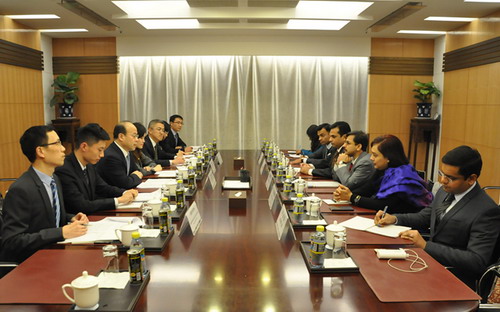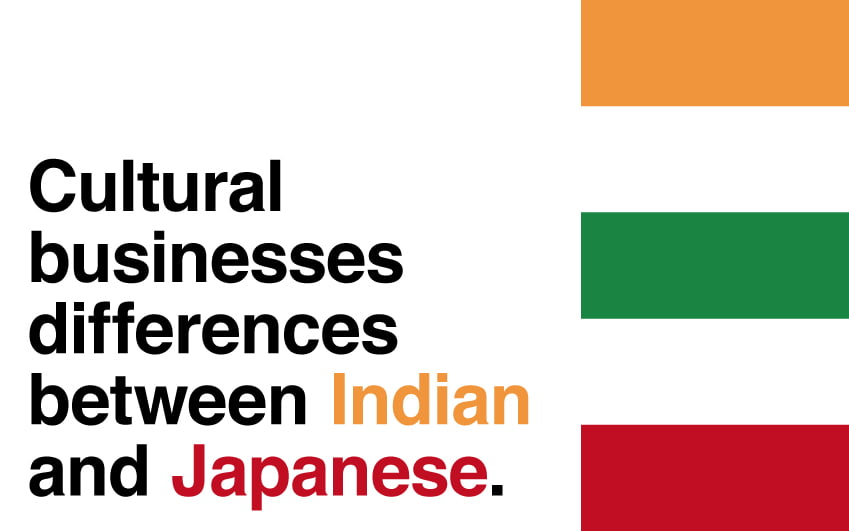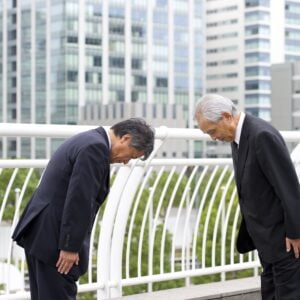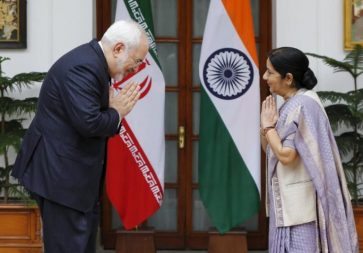Indians are strongly guided by their respective religions and their shared values. Respect for elders and hierarchy are core values that permeate all aspects of Indian society. Indians also place huge importance on family and community. And as in many Asian cultures, the concept of saving face – avoiding blame decision-making processes and affect your business dealings in India.
Building good business relationships and trust are important in India, so you should expect to spend plenty of time at meetings, dinners and social clubs with potential business partners. In a first meeting, let the Indian host guide the initial stages of the conversation. As in some other Asian cultures, Indians like to develop a personal connection first.India’s emerging economy encourages international business relationships and more companies are looking to do business in India.
In India you are likely to encounter two types of companies. The first is a traditional, family-run business, the second being a more modern hi-tech operation working with western business methodology. Being the boss usually means ‘the boss’ in India. As the boss you are expected to ‘play the part.’ Senior managers are not expected to engage in work which could be done by somebody lower down the organisation. Most decisions are made at the top of an organisation and it can be a waste of time negotiating at the middle levels of a company if top level approval has not already been given. Working hours in India usually start from 10AM. However, some companies in large cities such as Mumbai are known to start as early as 7.30AM.
COMPARISON BETWEEN JAPAN AND INDIA BUSINESS ETIQUETTE
Its difficult to inspire trust with Japanese in the early stages, due to certain stark differences in work culture and behavioral patterns. They reach meetings early, understanding traffic conditions and other possible delays and account for them . If we reach late, they will receive you politely, smile and bow.
The Japanese don’t contradict each other, or their boss, in public. They present a homogenous front. We are freer to put forth our differing point of view. After all, we are the argumentative Indians. They are extremely courteous, whereas we tend to get aggressive in tone and manner, often interrupting and getting repetitive. May be because we are unsure if they have fully comprehended.
INITIAL MEET AND GREET
Travelling to India or Japan, an understanding of how to formally introduce and greet one another is crucial. how a person acts upon first encounters could potentially determine future relationship. Both countries considers the following:
DRESS CODE
Business attire for India and Japan demonstrate notable differences when comparing formality.
- In Japan, conservative dress code is strict. Business associates are expected to wear suits, commonly dark in color.
- When approaching a meeting with Japanese clients, not only are Japanese business card highly important, but it’s also best to air on the side of caution with conservative apparel. The Japanese place a keen importance to the detail and sophistication of business clothing. This can often reflect a status level in the traditionally rigid Japanese business hierarchy.
- India business attire is more casual with business suits being less common and not an expectation.
- For men, the normal business attire is a button-down shirt, trousers, and a jacket or tie depending on the formality of meeting or industry(in the banking and professional sectors, suits are more prevalent)
- For women, the dress code in Indian business settings has undergone a significant transformation in recent years. Nowadays women often wear pant-suits or blouse and skirts, even though saris and salwar kameez are considered acceptable as business attire.


HANDSHAKING AND BOWING
- When introducing one’s self to a business professional in Japan, is customary to bow after the expected handshake.

- India still follows the orthodox method of greeting ”sir” or ”Madam”. In corporate world, handshakes prevail mostly with men and with women too these days. Otherwise, a Namaste with folded hands is the best.

BUSINESS CARDS
- These are essential in India when conducting business in India and must be handled with respect . Make sure your card includes your name, company name, position and email address, all in English. If you have a higher degree such as a masters or a PhD, you may wish to disclose it on your business card, as it will earn you greater respect in India.
- The exchange of card is an essential part of initial meetings in Japan and follows a strict protocol. It allows the Japanese to quickly determine their counterpart’s all-important position, title and rank.
HOSPITALITY
- Indian culture compared to Japanese has much more casual sense of hospitality. Typically, from the first meeting, Indian culture is lavish and will offer food and beverage to make their business associates as comfortable as possible.
- Japanese culture primarily focuses on formality. Guests are expected to abide by their stricter, more formal culture to avoid any conflict.
ABOUT JAPAN BUSINESS ETIQUETTE

There has been much written about Japanese business etiquette, but sadly much of it seems written by people who have not been to Japan since 1970s. Japanese business etiquette is not so different from good business etiquette elsewhere: after all, politeness, sensitivity to others, and good manners are the pillars of good business etiquette everywhere.
The main difference with Japanese business etiquette, as with Japanese society, is that it’s more formal and thus more obvious, especially at a first meeting when the hierarchical exchange of those Japanese business cards is almost ritualistic. Traditionally, Japanese culture has very strict rules of etiquette appropriate for every situation, from interactions between neighbors, customers and staff in a store, politicians, and every other social situation under the sun. nowhere are these rules and customs more keenly felt by expatriates than in Japanese business.
Connections are very helpful in Japan but choose your contacts carefully. Pick someone of the same rank as the person with whom he or she will have dealings. Japanese business people will want to learn as much as possible about your professional background and qualifications. Negotiations generally have an atmosphere of deep seriousness. In order to succeed, you must describe how your product can enhance the prosperity and reputation of your Japanese counterparts. Japanese prefer verbal agreements to written ones, and shouldn’t be pressured into signing documents. Decisions are made only within the group. Foreigners must gain acceptance from the group before they can have influence in the decision-making process. Due to the strong contemporary business competition in Asia, the old concept of ‘unhurried’ Japanese negotiation process is no longer applicable. Decisions are made swiftly and efficiently.




